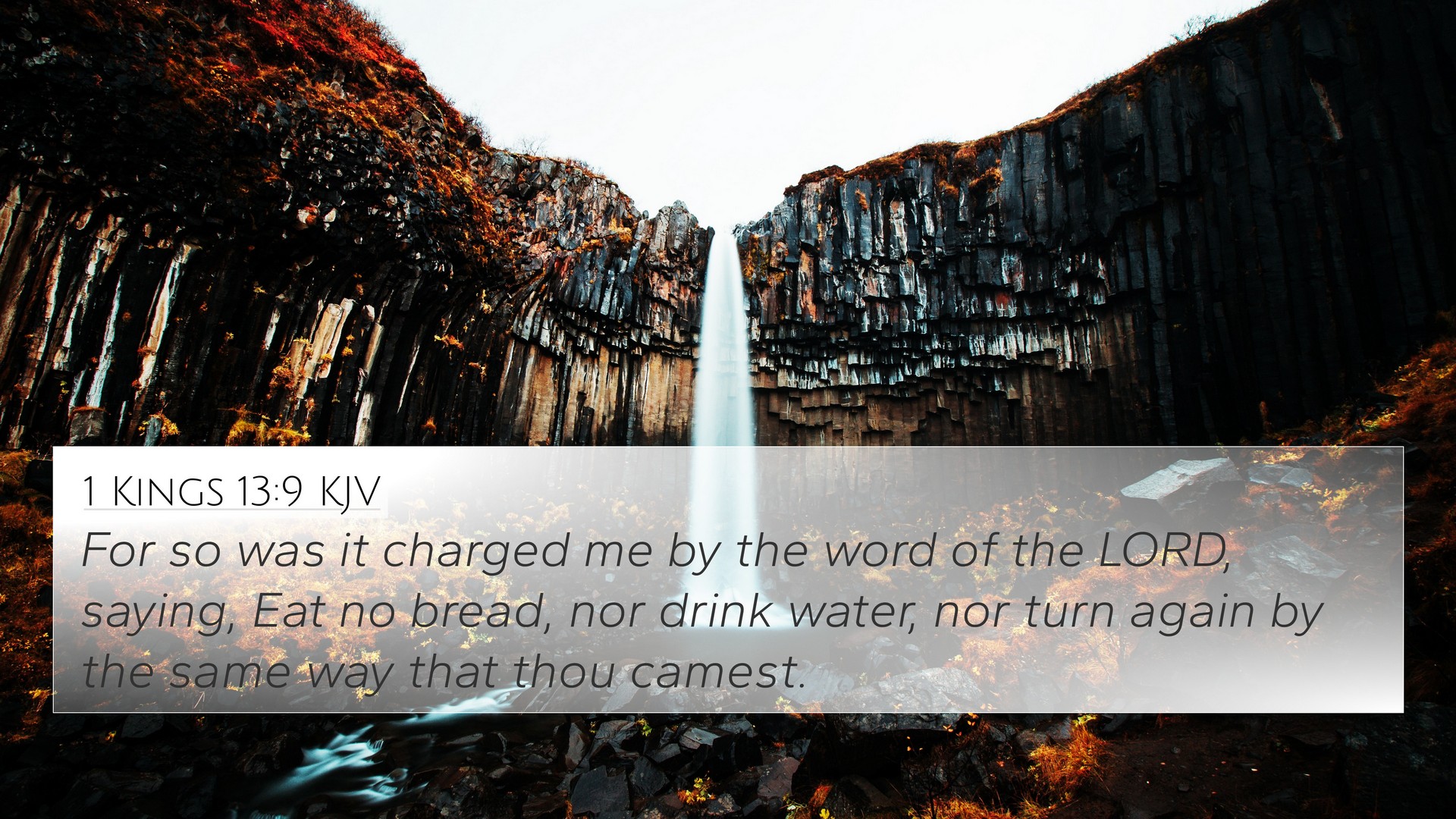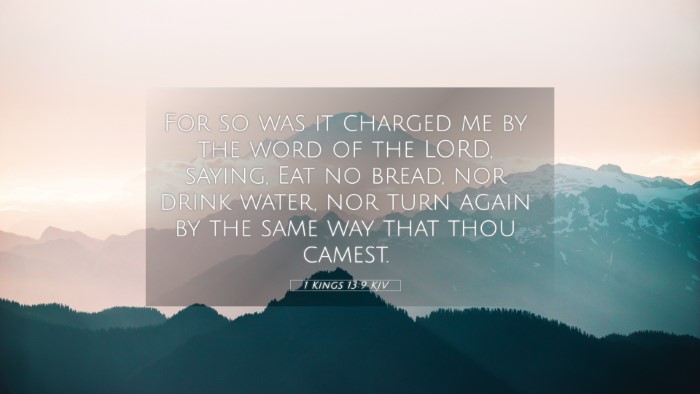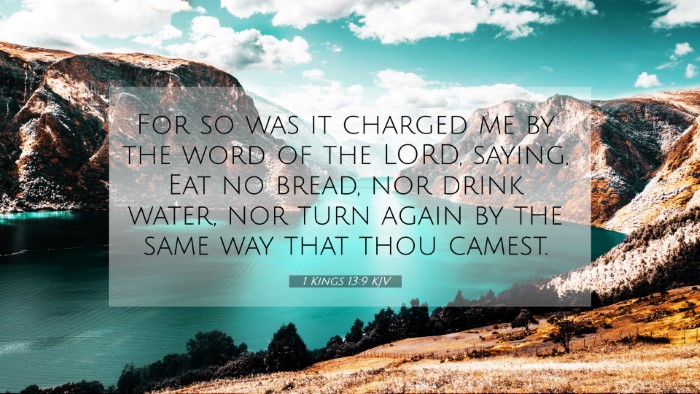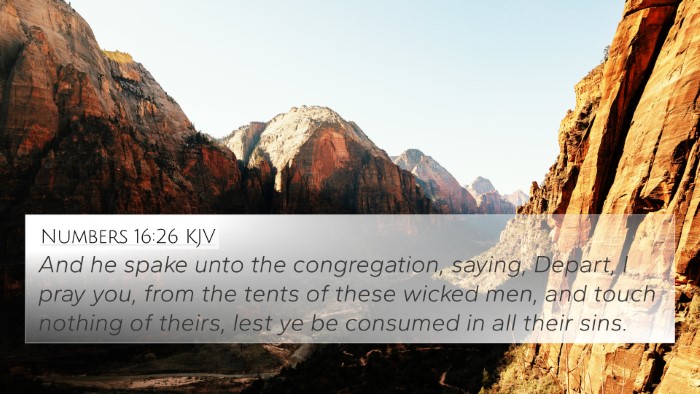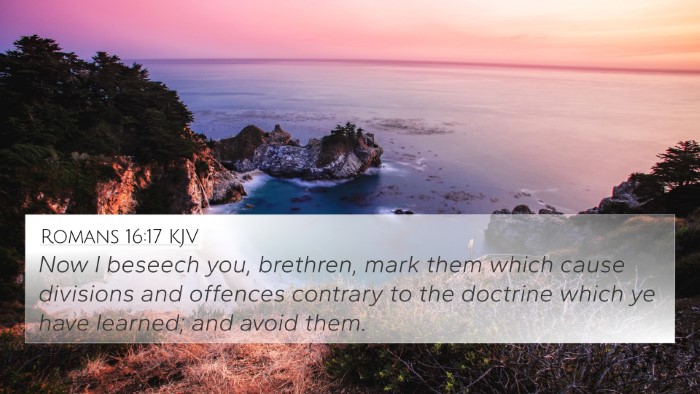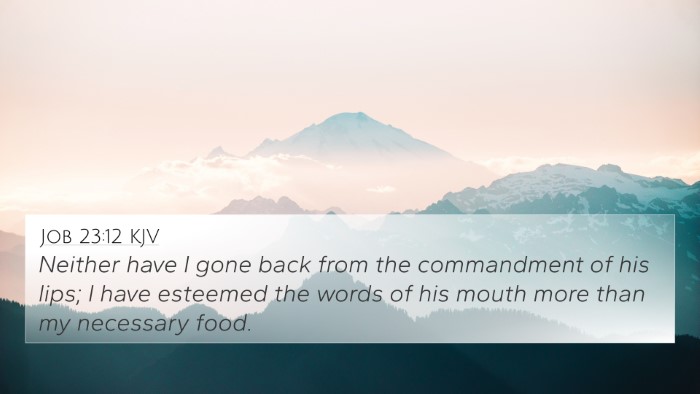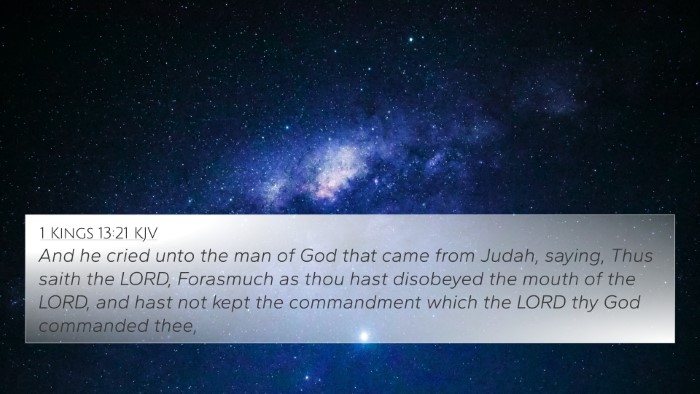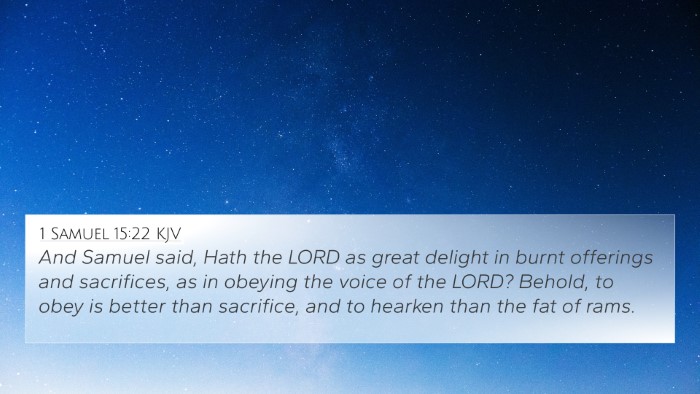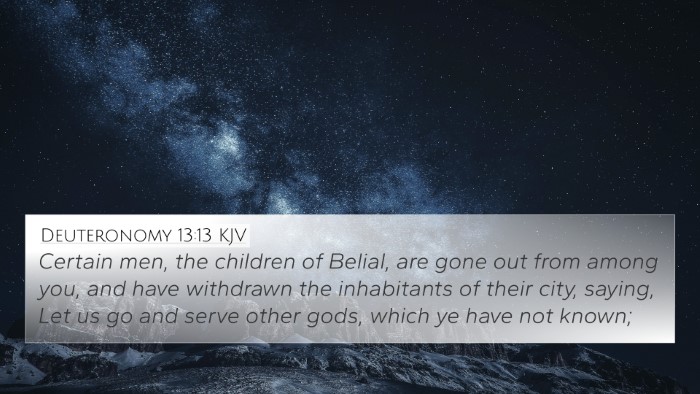Bible Verse: 1 Kings 13:9
Verse Text: "For so was it charged me by the word of the LORD, saying, Eat no bread, nor drink water, nor turn again by the same way that thou camest."
Understanding 1 Kings 13:9
The complexity of 1 Kings 13:9 lies in its context and the broader narrative surrounding the life of the prophet who delivered this message. This verse illustrates the seriousness of divine instructions and the consequences of disobedience.
Interpretation Insights
Matthew Henry's Commentary: Henry expounds upon this verse by emphasizing the importance of obedience to God's word. He notes that the specifics of the prophet's instructions—namely, abstaining from food and drink and the directive not to return by the same route—are critical in demonstrating his commitment to following the divine mandate without alteration.
Albert Barnes' Notes: Barnes highlights that this command shows the seriousness with which God expects His messages to be delivered and followed. He suggests that the conditions set forth not only serve to test the prophet’s fidelity but also illustrate a broader principle of remaining steadfast in God’s ways.
Adam Clarke's Commentary: Clarke delves into the symbolic meaning of the instructions. He posits that the act of eating and drinking is a metaphor for indulging in worldly pleasures, which can distract from one's mission. The prohibition against returning the same way signifies the need for a transformative path in proclaiming God’s message.
Key Themes and Applications
- Obedience to God's Commands: The verse underscores the necessity of adhering strictly to God's instructions without reinterpretation or personal alteration.
- Consequences of Disobedience: The surrounding narrative warns of the ramifications when one chooses to deviate from God’s clearly articulated directives.
- The Test of Faith: The instructions serve as a test of faith for the prophet, illustrating that faith often requires following through with uncomfortable commands.
Cross-References
This verse is interconnected with several other scripture passages that reinforce its themes of obedience, divine instruction, and the seriousness of prophetic ministry. Below are some relevant cross-references:
- Numbers 20:12 – "And the LORD spake unto Moses and Aaron, Because ye believed me not, to sanctify me in the eyes of the children of Israel, therefore ye shall not bring this congregation into the land which I have given them."
- Jeremiah 26:5 – "To hearken to the words of my servants the prophets, whom I sent unto you, both rising up early, and sending them; but ye have not hearkened."
- Isaiah 1:19 – "If ye be willing and obedient, ye shall eat the good of the land."
- Luke 9:62 – "And Jesus said unto him, No man, having put his hand to the plough, and looking back, is fit for the kingdom of God."
- 1 Corinthians 9:14 – "Even so hath the Lord ordained that they which preach the gospel should live of the gospel."
- James 1:22 – "But be ye doers of the word, and not hearers only, deceiving your own selves."
- Hebrews 11:6 – "But without faith it is impossible to please him: for he that cometh to God must believe that he is, and that he is a rewarder of them that diligently seek him."
Practical Implications
For modern believers, the directive found in 1 Kings 13:9 serves as a reminder of the importance of listening and adhering to God's voice. The prayerful consideration of how we respond to divine guidance is essential for our spiritual journey. The necessity of obedience is also highlighted in the New Testament, where the teachings of Jesus call us to follow Him unequivocally.
Conclusion
1 Kings 13:9 encapsulates a critical moment in biblical history where obedience to God is paramount. Through a careful examination of commentaries and related scripts, we gain a deeper appreciation for the directive's weight and timeless implications. The challenge for believers remains to seek and follow God's will with unwavering fidelity.
